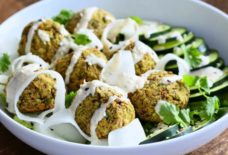'After War We Now Have This': Syrians Grapple with Poverty and Coronavirus
SOURCE: THE GUARDIAN
BY: BETHAN McKERNAN
Kareem Zukari has endured a lot during the nine years of Syria’s war. There have been missiles and bullets, loved ones killed, and the fear of being conscripted into the army or tortured in Bashar al-Assad’s prisons. But no matter how bad things got, there was always food.
“Now there is so much poverty,” the 25-year-old from the Damascus neighbourhood of Barzeh said. “There are families living on $200 [£160] a month, but I don’t call that living. It’s barely managing to eat. And now with the coronavirus some businessmen are capitalising on the panic and raising prices.” He asked that his real name not be used for fear of repercussions.
With Assad now back in control of most of Syria, the government should be focusing on the challenge of rebuilding a country it bombed into ruins while trying to drive out rebel forces and extremist groups. But since January the value of the Syrian pound – last year trading at 500 to the dollar – has dropped off a cliff, reaching a record low of 1,360 to the dollar on the black market in late March. As a result, inflation and the cost of basic goods are soaring. Even subsidised bread is sometimes unavailable as Damascus runs out of flour and wheat reserves, relying on its Russian allies for emergency shipments.
According to a UN report from 2019, 83% of people across both government and rebel parts of the country were already living in poverty. The collapse of what is left of Syria’s economy means the timing of the Covid-19 crisis could not be worse.
While the regime has imposed curfews and lockdown measures to slow the spread of the virus, every day hundreds of people gather for hours to wait for bread at distribution points. In some cases, fights have broken out or people have stolen from food trucks in a desperate attempt to feed their families.
Food, soap and disinfectants are still on the shelves, but price gouging, often by profiteers with ties to the regime, means basic supplies are now completely unaffordable: vegetables and eggs have gone up by between 40 and 75%, according to local media. Government bread, which is supposed to cost 50 pounds a packet, now sells on the black market for up to 10 times as much.
The financial crisis next door in Lebanon, long the main dollar market for Syrian importers, is the main trigger for Syria’s new economic instability, along with changes to how energy is imported from Iran and the drying up of foreign funding for the opposition, a lot of which used to percolate into government territory.
Assad may have all but won the war, but maintaining control in such a tense economic environment is a difficult new battle. Price increases for food, fuel and transport have even sparked rare protests against the government in places such as Sweida, a city in the south-west populated mostly by members of the Druze minority sect that has remained nominally loyal to the government throughout the war. Remarkably, no one was arrested: instead, the state news agency reported on the protests.
Damascus is seeking to exploit the Covid-19 emergency with renewed calls for the end of international sanctions, which it says will alleviate both the health and economic crises.
While Syria’s broken healthcare system cannot cope with a major outbreak, relief from sanctions – which do not target the medical sector – is unlikely to reach Syrian civilians.
“Even if sanctions are lifted, the regime will remain broke. At a time of global competition for a limited supply of [protective equipment], ventilators and testing kits, when the USA is struggling to secure supplies, how will Syria be able to do so?” said Elizabeth Tsurkov, a fellow at the Foreign Policy Research Institute, a US thinktank.
“The regime has never prioritised the health of its citizenry or even its core support base over its ability to wage warfare. Healthcare in the Syrian army and militias is terrible.”
People living in regime areas are already accustomed to buying or subsidising basic medical equipment such as needles, ventilators and medicine: according to the World Health Organization, since the war broke out only about half of Syria’s medical facilities are fully functional.
The situation in the rebel-held north-west, and Kurdish-controlled north-east, where thousands of people are living in displacement camps, is even more pressing. Government-controlled Syria only has 19 confirmed cases of Covid-19 so far, but testing is almost non-existent, leading many to fear the reality is much worse.
“The situation with coronavirus is really blurry. No one knows what’s going on and people are scared,” Zukari said. “I don’t know what to believe. I think they are hiding it. Even after all the war we now have this.”


